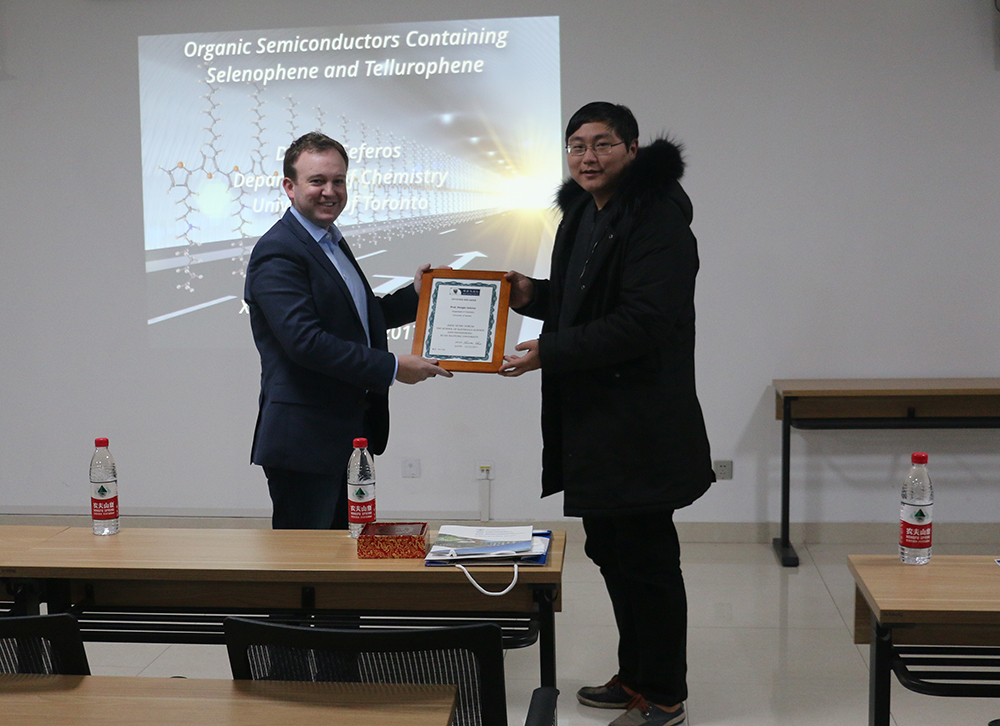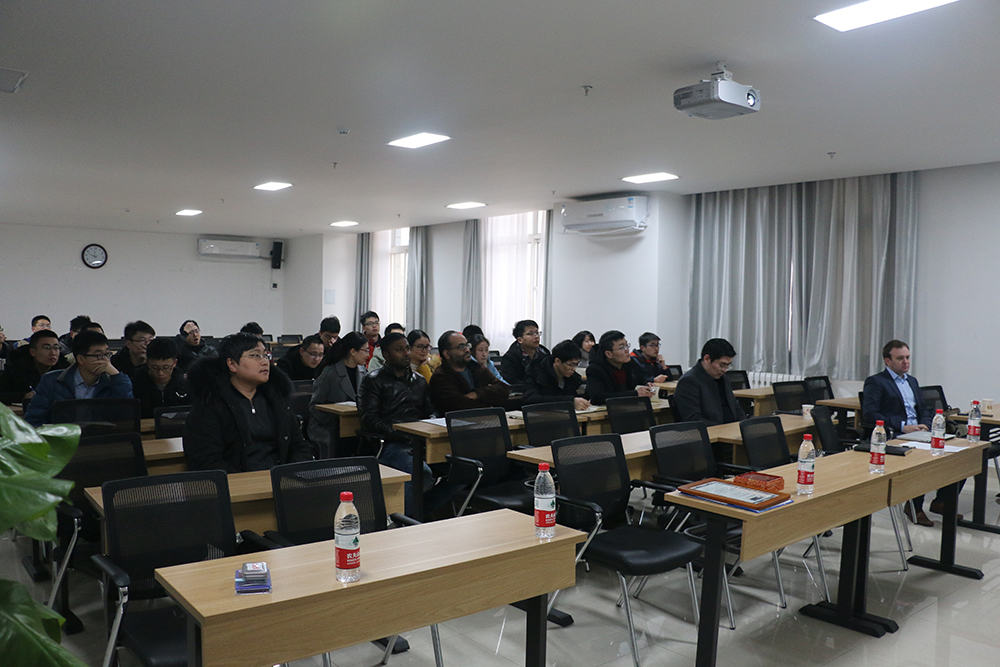by Naveed, Hafiz Bilal
Prof. Dwight Seferos is a full Professor of chemistry, chemical engineering and Polymer nanomaterials at University of Toronto, Canada. His research focus is mainly on the synthesis of novel polymer semiconductors with a particular focus on optical and electronic properties towards extravagant solar energy applications. He has authored and c-authored more than 100 publications in top international journals along with several patents to his name. He also has a chair in the editorial advisory board of Chemistry of Materials and Macromolecules, well-read chemistry journals.

Certificate was awarded by Prof.Wei Zhang
He was invited specially by XJTU-MSE to speak about “Electronically Delocalized Molecules and Polymers that Contain Solenium and Tellurium” and to share the contributions, his group has made so far in the field. A larger number of material science students and faculty members have attended the event as they all seemed delighted with his pleasing communication and presentation skills. He was introduced to the audience by Prof. Wei Ma and presented with souvenirs by Prof. Wei Zhang (Assistant Dean) of the school of MSE.

Prof. Dwight Seferos was giving lecture to the teachers and students
His talk began with the contribution of novel polymer design and their self-organization ability at nano-scale towards a favorable phase separation and the significance of developing conjugated block copolymers for photovoltaic application. He immediately took his audience towards utilization of Solenium and Tellurium for the development of block copolymers and explained very interesting evolution of self-organized phase separation with their specific weight contributions. He explained the significant choice of Solenium and Tellurium in terms of realizing favorable charge transport in high mobility conjugated polymers. For organic photovoltaic (OPV) applications, they developed copolymer nanowires (NWs) and reported their superior advantage as a photoactive material in comparison to homopolymer nanowires towards realizing high efficiency organic solar cells (OSCs). Limitation of open circuit voltage (high energy losses) was also a highlight of his talk as they are attempting to study its origin with consistent crystallization of polymer domains in the photoactive layer of OSCs. At the end, Prof. Seferos talked about the exotic use of conjugated block copolymer towards the development of organic batteries, the possibility of paper/fabric printing of batteries towards minimizing the volatile prospect of electrochemical energy source.
In the last half an hour, audience threw their appreciation towards Prof. Seferos by actively participating in the Q/A session and discussed future implications of Tellurium based heavy conjugated polymers with a troublesome synthesis process. Advantages of material chemistry towards developing these polymers are unique for photovoltaic and battery application towards large area commercial devices.


